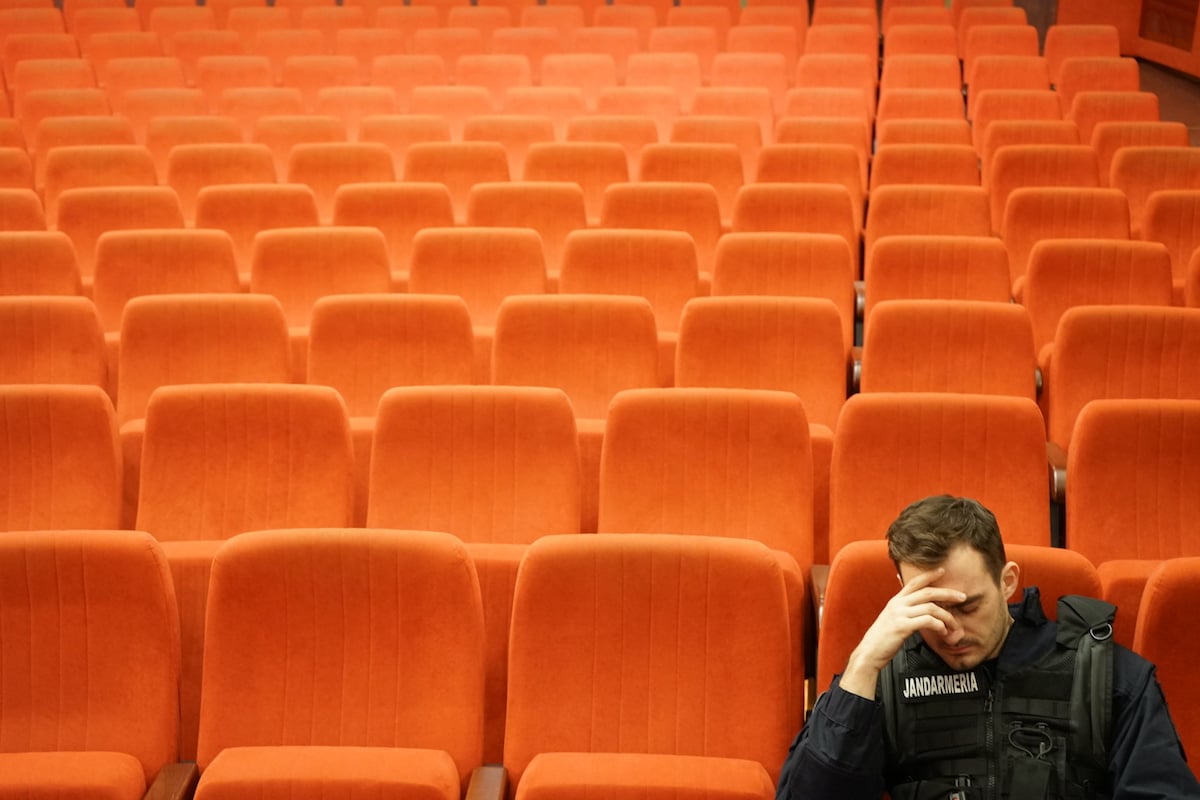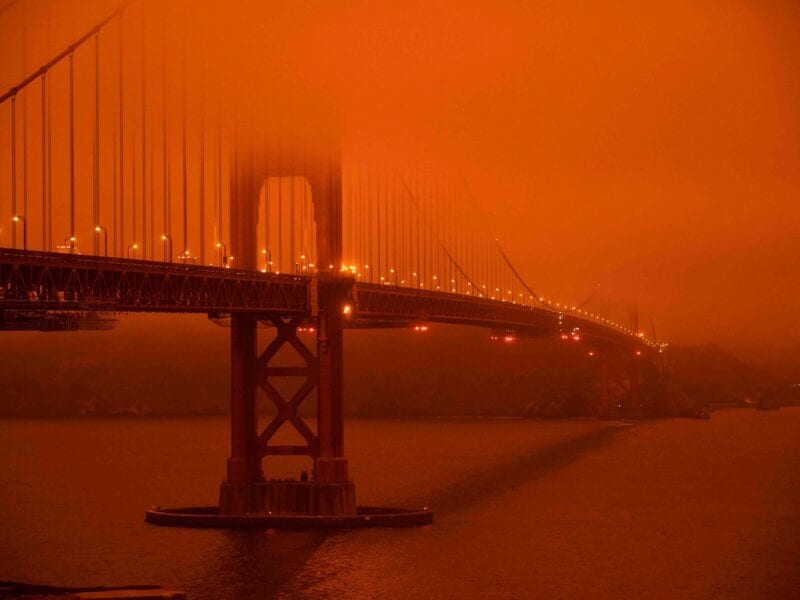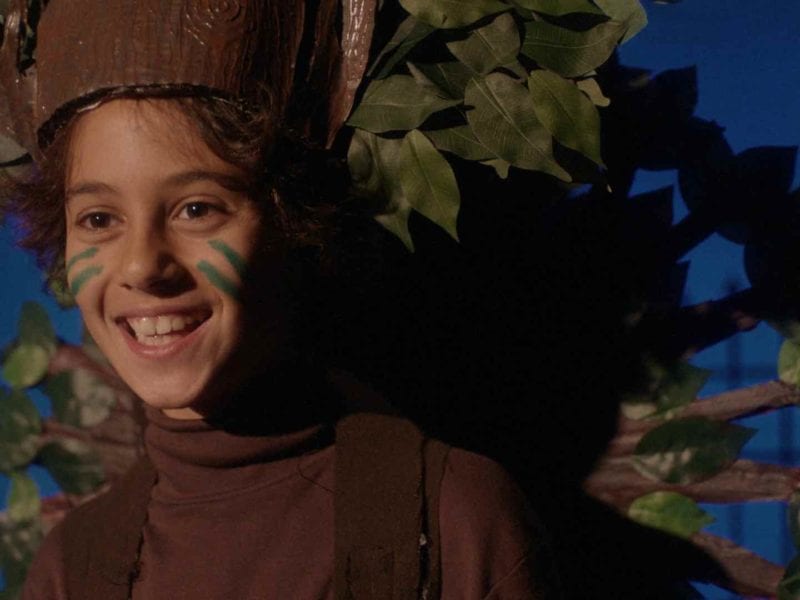
Otilia Baraboi: Bringing Romanian film to American
Independent films festivals all around the world help highlight the most talented filmmakers out there. One festival in Seattle takes a special interest in Romanian films and brings them to North America each year. Hosted by the American Romanian Cultural Society (ARCS), the Romanian Film Festival will have its eighth run from November 12th through November 21st this year.
Otilia Baraboi is the Executive Director of ARCS and the co-founder of the Romanian Film Festival. Baraboi is a writer, journalist, and teacher with a Ph.D. on the politics of translation from the University of Washington. She moved to Seattle from Romania in 2000, and in 2013 she helped to found ARCS. For the past 8 years, she’s overseen the Romanian Film Festival in Seattle.
We were lucky enough to have a conversation with Otilia Baraboi. We talked about ARCS, running a film festival during a pandemic, and tips for aspiring filmmakers. Baraboi is an active voice in the film making world, and her insights will delight anyone who’s a fan of the craft.

Tell us about your journey to working in the arts.
I was born in the Northern part of Romania in a relatively big city with a vibrant cultural life. I started writing and publishing in high-school and belonged to a few literary groups that believed art can change the world we lived in -it was in the early 1990’s, right after the fall of the Berlin Wall and we were finally free to express ourselves without any form of censorship. Whenever I feel jaded today, take things for granted or lose my sense of wonder, I remind myself that freedom of speech or expression is a privilege I didn’t always have.
What are some of your greatest artistic inspirations?
I studied French Literature, therefore most of my models come from Romania and France. I am fascinated by the Dada movement initiated by my co-national Tristan Tzara. I love the Dadaist radical art and poetry, its performativity and stance against the establishment, as well as the Surrealist movement born from Dada, manifest in art, literature and cinema. Two of my favorite poets and writers are Surrealists Gherasim Luca (who coined the term stutterism) and Georges Bataille who questioned various tabu topics in our societies, such as the link between eroticism and religion and the mechanics of our collective imagination. In film, I admire the same avant-garde spirit in Louis Bunuel, Jean Cocteau, Sergei Eisenstein or Jean-Luc Godard. I guess I’m nostalgic for those times in the 2oth century when intellectuals had a subversive sense of agency in the world.
Tell us about the ARCS Project & The Romanian Film Festival. What has the experience of your work taught you?
I co-founded ARCS in 2013, together with a colleague from the University of Washington, Ileana Marin. The main reason to create this non-profit was to have the legal structure that would allow us to bring Romanian films to Seattle, the city with the biggest international film festival in the US – SIFF (Seattle International Film festival).
At that time there was a lot of enthusiasm, especially in academic circles, about “New Romanian Cinema,” or the Romanian “New Wave,” represented by directors such as Cristian Mungiu, Cristi Puiu, Corneliu Porumboiu, Radu Jude, and Radu Muntean, to name just a few. I learned a lot from my work as a community organizer. Having been raised in a communist and post-communist country, I had only an intuitive sense of how a healthy civic society should function in a democratic environment. I was totally “illiterate” and didn’t have any ideas of what it means to work with a board of directors, do fundraising, or advocacy work for my community and its allies. The Romanian Film Festival is mainly funded through an annual crowdfunding campaign. It’s a great example of civic solidarity I didn’t believe could be possible. These eight years taught me how to be a better citizen and person, the value of volunteer work, and that soft power does work as an agent of change for the greater good. Most importantly, thanks to the support network we have been building with other local and national non-profits, cultural institutions, and our audience, I learned to feel at home in my adoptive country.
How has the COVID-19 pandemic affected the film festival?
Initially the film festival started as a community partnership with SIFF (Seattle International Film Festival). As you may know, SIFF took a hard blow with the pandemic and ceased hosting smaller film festivals in the first year. Since we had started a project with Northwest Film Forum before the pandemic – we were going to show a retrospective of Romanian cinema, in collaboration with the Making Waves festival from New York – we continued to work together and decided to hold the festival online, hosted by their platform on Eventive. This allowed us to bring national visibility to the festival and this year, we are thrilled to have a partnership with Arizona Romanian Film Festival, and many community partners on the West Coast, in Washington D.C., Detroit (ARCS Detroit), New York (The Romanian Cultural Institute), and University of Pittsburgh, Chicago. The silver lining of the pandemic is this network of collaborations that help us promote Romanian films at the national level. In the future we hope to keep the festival in a hybrid form, on Eventive, and at different locations in the country.

Any plans for the festival to return to in-person screenings in the future?
Yes, we were going to hold this edition in a hybrid format, with in person screenings at Northwest Film Forum and Seattle International Film festival. Unfortunately, the Delta variant gave us quite a scare and we decided to focus on the virtual festival experience and the collaboration with the other national co-organizers. Next year we will have in person screenings for sure, in Seattle, and hopefully in other cities, including Phoenix and Detroit.
Do you find it difficult to maintain a link to your cultural heritage in the United States?
To tell you the truth, yes, because of lack of resources and the constant struggle to fundraise. Not all ethnic groups have access to capacity building funds, and for communities of newcomers, such as ours, it is a long process to learn where to find these resources and how to ask for them. Besides the film festival, ARCS founded the first secular school for Romanian heritage students in the US. We advocate for bilingual education for the second generation and have formed several strategic alliances with other non-profits that promote cultural heritage such as the Ethnic Heritage Council of the Pacific Northwest, or the World Affairs Council. Thanks to these partnerships we received an important grant from WA State (OSPI) and hope that our collaborative model will serve as an example for other ethnic communities that struggle to find resources.
If you could have all of our readers watch a few Romanian films, which would you suggest?
I would start by recommending a few comedies such as the collection of shorts “Tales from the Golden Age,” “Two Lottery Tickets” by Paul Negoescu, or “Of Snails and Men” by Tudor Giurgiu, because Romanian films have grown to have a reputation for being bleak, which is not necessarily true. This is why we named the film festival “One Eye Laughing, One Eye Crying.” There is a lot of dark humor in Romanian dramas such as “The Death of Mr Lăzărescu” by Cristi Puiu, or even in “Aferim!” by Radu Jude, which deals with the tragic history of Roma slavery in Romania. Last year we showed at the film festival a documentary by Alexander Nanau, “Collective”, that was shortlisted for the Academy Awards. I highly recommend it, if you are interested how independent journalism can fight corrupt governments.
What is the main thing you want audiences to take away from their ARCS Project experience?
I would like people to get their calendars ready for 2022 because we have amazing events and partnerships coming up, besides the annual film festival in November. We would like them to hear “Romanian” as a buzz word for great art, film, and cultural programs open to everyone.

If you could only watch one movie for the rest of your life, what would it be?
I would watch “Being John Malkovich.” It’s quite philosophical and entertaining at the same time, it would be hard to get bored of it.
What’s next for ARCS?
Our programs are taking wings nationally, as we are in the process of launching a new branch in Detroit. Locally, we are getting ready to move to a new location in Seattle at the MLK Community Center where we will join a vibrant multiethnic ecosystem of cultural and educational non-profits. We are looking forward to going back to in-person events – workshops, book launches and movie nights – at our new home.
What has been your biggest success?
Every edition of the film festival has been a big success, as well as our educational programs for heritage students. After years of hard work, we are starting to get local and national recognition and our growth strategy has been successful and constant year after year. But the biggest success remains the community we have been building and the sense of belonging that comes from it.
What about your biggest failure? What lessons did you take away from it?
It is hard to say, I don’t think that ARCS has failed yet in anything. There are certainly aspects that need improvement, such as volunteer management and outreach outside our immediate audience. People still ask us if the films we bring have English subtitles, which shows that we need to do a better job at packaging our programs. No one wonders if a French or Italian Film Festival will have subtitles or not, everyone knows they do. We are no different than any other non-profit though, and the lessons we learn are to work together as much as possible, find partners that can provide the kind of outreach you need.

What’s your five-year plan?
For ARCS, I wish for our national model to find homes in several states where there is a community in need for film, educational, and cultural programs. On a personal level, I plan to go back to writing and publishing literature, as well as keep engaged in advocacy work for bilingual and immigrant writers like myself. Paradoxically enough, despite all the cultures that coexist here, the U.S. can be such a monolingual society, afraid to translate, afraid to explore without the pressure to assimilate.
What indie filmmakers should be on our radar?
Ilinca Călugăreanu’s new film is coming out, “A Cops and Robbers Story”. She is a UK-based Romanian filmmaker who made her debut with “Chuck Norris vs Communism” (2011). I’m looking forward to seeing her new film; she is quite extraordinary and doesn’t fit into any categories. I had the pleasure to meet her at SIFF when she was touring with her documentary. And, to go back to my French background, if you don’t know her already, check out the work of Claire Denis – she made many films. I would recommend “I Can’t Sleep” (1994), “Trouble Every Day” (2001), or ”White Material” (2009).
Have you worked with mentors in the past? How would you recommend people go about finding them?
Unfortunately, no. I have friends who support my work, but I never crossed paths with someone who could act as my mentor. There is a power dynamic in the mentor-disciple relationship that I find hard to navigate, especially for someone like me coming from a society where male writers, and creators in general, have been valued and promoted more than female voices. It might be too late for me, but I still hope I can find the type of balanced relationship of trust that needs to be in place. This is a truly miraculous encounter, though.

What’s your favorite film of all time, and what did you learn from it?
I don’t really have a favorite film of all time; it’s too hard to choose. I loved the film “The Hours,” made by Steven Daldry in 2002, based on a novel by Michael Cunningham. Virginia Woolf is one of my favorite writers and it was fascinating how the film and the book showed this intimate, transgenerational, and cross-cultural connection we have at the unconscious level, with other creative people facing similar daily struggles.
Who would compose the soundtrack of your life?
I love the French composer and pianist Erik Satie. He seized a certain poetics of haunting and longing which can define the life of an uprooted person like myself.
What advice do you have for aspiring artists?
I would tell them not to waste any precious time worrying too much about getting noticed and recognized. Find a supportive community, enjoy your craft and gift, and create regularly. The world will come to you when these basic things are in place.







